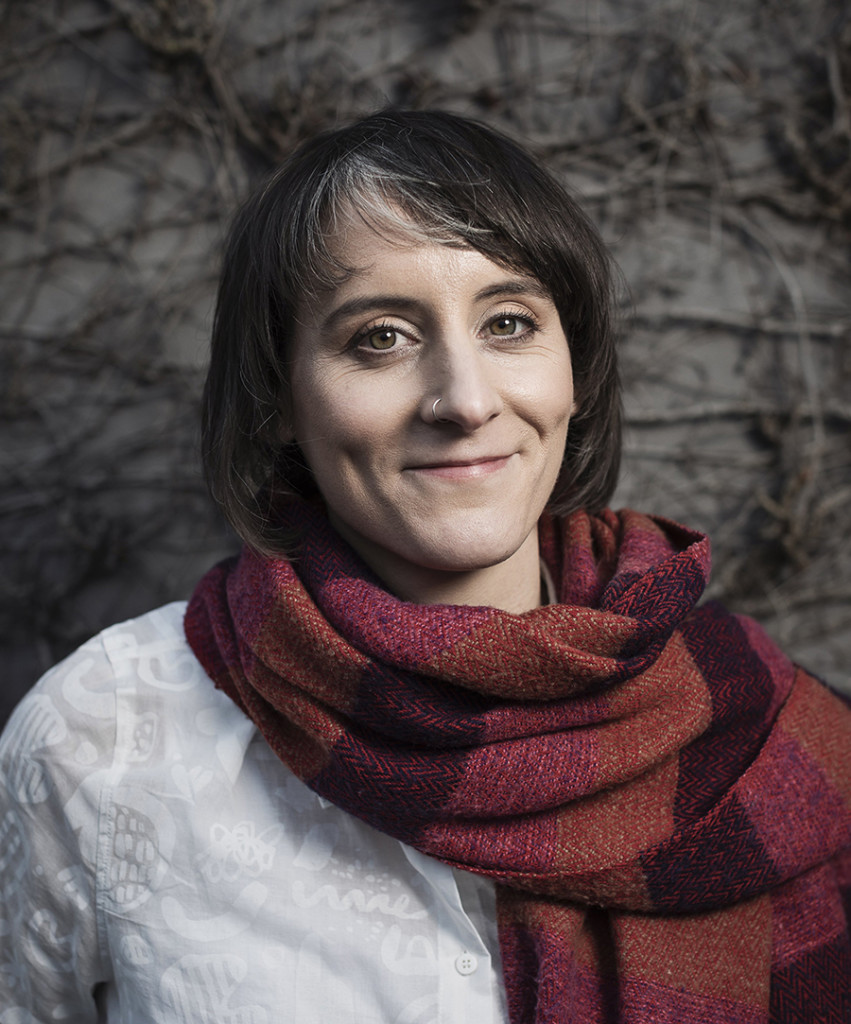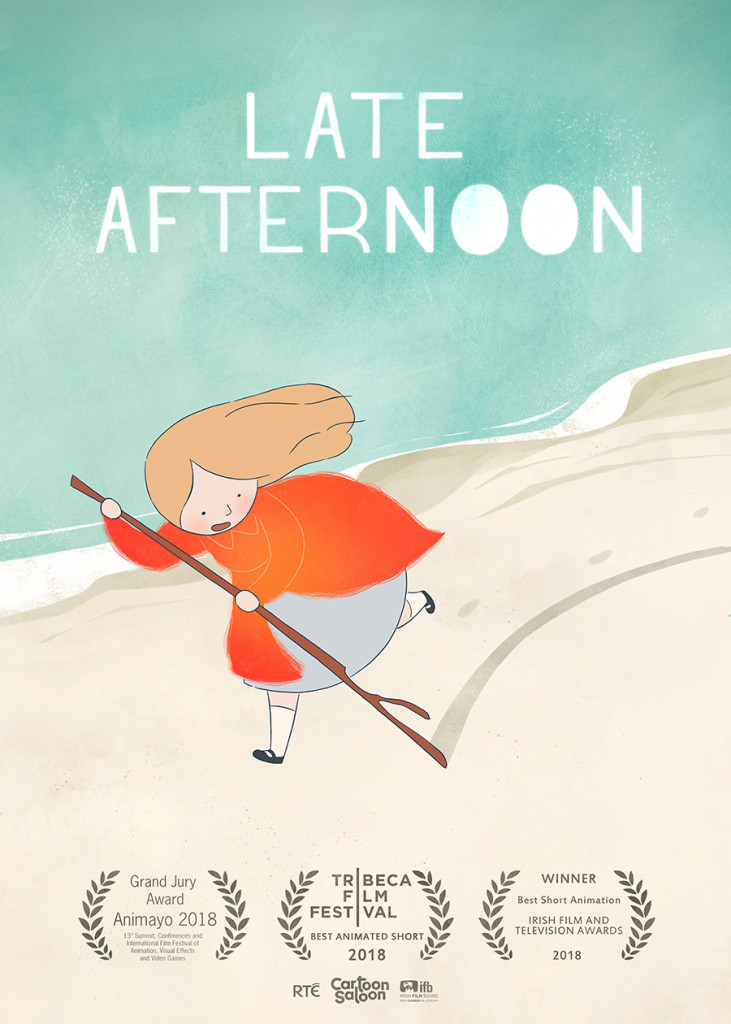WIA SPOTLIGHT STORIES
SPOTLIGHT STORIES: LOUISE BAGNALL
Interview conducted by Tracey Miller-Zarneke
WIA is pleased to share the perspective of Oscar-nominated filmmaker Louise Bagnall, recognized in the 2019 Academy Awards as a nominee for her animated short, “Late Afternoon.” Prior to this project, Louise directed several short animated films including “Cúl An Tí,” “Loose Ends” and “Donkey.” She has worked as a character designer on the series Puffin Rock and on the feature film The Breadwinner, plus as a storyboard artist on the upcoming feature film Wolfwalkers. She is currently the assistant director on Nora Twomey’s Netflix film My Father’s Dragon, and WIA is grateful that she found time to talk to our membership in between all of her hard work, and all the way from Ireland.
Think back to the earliest moment in your life when you realized you loved art and telling stories, and please share it with us.
My father was an architect and when I was young, he would bring home these huge rolls of paper that were going to be thrown away. My sister and I would sit in the middle of it and draw our way out. We’d invent characters and make up epic stories about them–it was a great way to spend an afternoon!
How did “Late Afternoon” come to you as an important story to tell?
The idea for “Late Afternoon” initially grew from a desire to explore a woman’s life from her own interior point of view. It was important for me that the story revolves around women and family relationships. I wanted to try to make a film that had a big, emotional hit, something I had avoided in my previous work.
What changed with this project to make you ready to express a big, emotional hit?
It’s hard to pin point exactly, but a lot of it was to do with gaining confidence in my own voice as a filmmaker. I received a lot of encouragement and support from Cartoon Saloon, which played a big role. They were able to guide me in the early stages of production and be a sounding board when I was fine-tuning the animatic.
Tell us about creating the character of Emily. And what do you hope her story says to its viewers?
At the beginning, Emily appears to be simply a sweet old lady, but of course there is more to her than meets the eye. Her memory loss allows the viewer to see and discover Emily’s identity alongside her. Her journey begins with idyllic memories of childhood and then grows more complex and overwhelming as we see more of her adult life. It was important to understand that there are whole lives and unique experiences underneath the surface.
What, if any, adversities have you faced in your career or life in general, and how did those experiences shape the filmmaker you are today?
I feel like I have been quite fortunate in my career. From the outset, I had the support of my family, for example. But I do feel that there were certain doors that were either closed to me or made me feel unwelcome.
In recent years, I felt more confident to face these challenges head on, both as a result of gaining experience and the general desire in the industry for change. However, I am very aware that many people, especially those entering the industry now, may still be faced with challenges that no longer affect me. It’s important to listen to them and to give them the space and confidence to speak up.
Has any project ever posed a challenge to you because you were female? If so, how? If not, what was one of your greatest challenges in making that happen?
I think there is a pressure sometimes to tell certain stories because you are a ‘female filmmaker.’ That can be frustrating, and early in my career I felt the need to prove that I could tell non-women centric stories. But now I just aim to tell whatever story I am most passionate about, be it concerning women or otherwise. That’s one of the reasons I was glad to make “Late Afternoon,” it’s un-ashamedly about women and women’s lives. But perhaps my next film will be a sci-fi battle in space… and that’s okay, too!
Why is an organization like Women in Animation important?
WIA helps to remind studios and industry professionals that there is a lot of talent that should not be overlooked. At the same time, it gives women entering the industry an awareness that they are not alone and shouldn’t feel isolated. Plus, it’s a place for them to meet and build networks which hopefully will lead to opportunities!
Who were/are your mentors, inside or outside of animation? How have they affected you?
Having been working in Cartoon Saloon for a few years now, I’ve been very inspired by Nora Twomey. She’s such a wonderful director–watching how she works and having her guidance has been amazing. Nora is very passionate about the stories she tells and at the same time she is very open to collaborate. It’s a way of working that I hope to emulate!
What advantages are there to having a diverse workforce when producing an animation?
There are so many advantages that it almost seems silly to try and list them! But for me, the biggest one is that you get different voices in the room. There is so much untapped potential that a diverse workforce can bring to the table…we are only scratching the surface!
How do you keep your artistic spirit refreshed, even when under the pressure of production deadlines or life challenges?
I don’t have any easy answer for this one! It’s important to have a life outside of work…after all, inspiration must come from somewhere! That can mean turning down opportunities because they will sap away your personal time. It’s a hard thing to balance and we all get it wrong sometimes, but you shouldn’t have to put life on hold to work in animation.
“Late Afternoon” is playing in theaters nationwide now as part of the Oscar Shorts program.
For more information, please visit: http://shorts.tv/theoscarshorts/
WIA wishes Louise all the best in her run for an Oscar, and continued success and happiness beyond this awards season.



